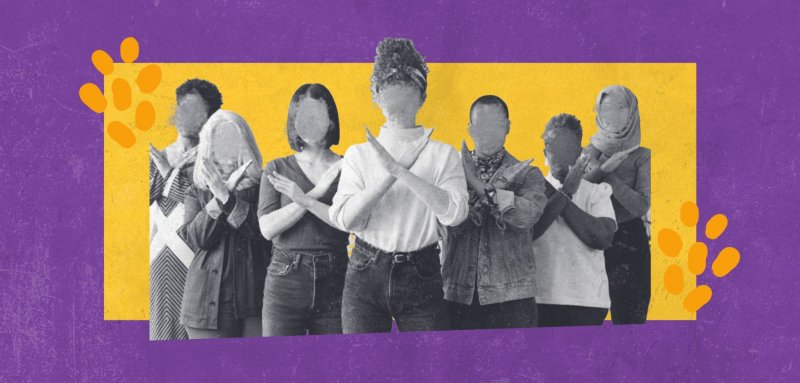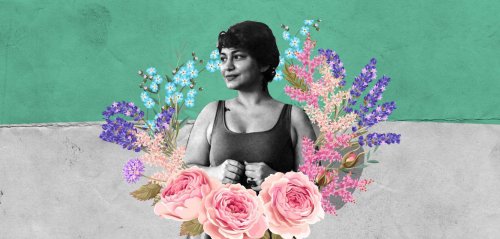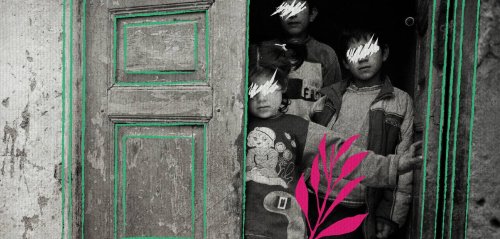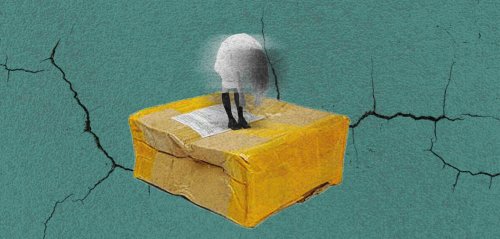In the years following the revolution, the Syrian public sphere underwent a noticeable qualitative development, as the celebration of International Women's Day gradually began to spread more and more. Previously, the 8th of March had been monopolized by the Syrian regime, which celebrates the anniversary of the "March 8 Revolution", the military coup that brought the ruling Ba’ath Party in Syria to power.
The shift to attention to Women's Day seems to be a qualitative development in the Syrian context, but watching social media left me with the strong impression that a misunderstanding has gradually overshadowed the concept of International Women's Day as a whole. The 8th of March, which is now called "Women's Day", had become based on the idea of praising women and gifting them flowers or celebratory cakes and desserts. Of course, it must also be accompanied by jokes that men make on social media, like: "When will there be a day dedicated to men as well? Why do we celebrate Women's Day when men are the ones who need to obtain their rights?"
On International Women's Day, what’s required of men isn't helping women wash the dishes, or giving them roses, but rather to take to the streets hand in hand with them to demand more justice.. Syrian women demand greater equality, justice, and basic rights
The truth is that International Women's Day is not some festive celebration, but rather is a day that was globally designated by the United Nations to remind of women's rights. This misappropriation states that Women’s Day celebrates women on that day. However in reality, this day celebrates the struggles that women have undertaken again and again for a more equal world. It is an opportunity to demonstrate and protest against the bitter reality that most women around the world experience. It is a day to emphasize the need to combat all forms of violence against women, and demand equality in all fields, the first of which is equal pay, as well as to protect women's right to self-determination and control over their bodies.
This year, French feminist organizations as usual called on the masses to demonstrate on the 8th of March, but the demonstrations came in light of the charged political atmosphere in the country, and came following a historic day of demonstrations and strikes in France against the proposed reform of the retirement law. The feminist organizations stressed the importance of demonstrating on Women's Day in protest against the proposed law because its negative effects will directly impact and reflect on women in particular, adding yet another reason to the usual ones when calling for demonstrations on this day.
Women demonstrated in France and in many parts of the world, and perhaps the world’s most prominent demonstration was a protest of about twenty women who took to the streets of the Afghani capital Kabul to protest the restrictions imposed on them by the Taliban rule, in a rare example of daring courage, matched only by Iranian women who have come out throughout this year in continuous protests against the restriction of their freedoms despite the Iranian regime's abuse and brutal response against them.
Of course, this day must also be accompanied by jokes that men make on social media, like: "When will there be a day dedicated to men as well?”
This year, International Women's Day arrived to find Syria – and Syrian women in particular – in an even worse state than any of the previous years that have come to pass on the ravaged country, as the effects of the devastating earthquake that struck southern Turkey and northern Syria on February 6 were added to a long history of oppression, injustice, years of revolution and armed conflict. Many Syrian women lost their homes and shelters in the blink of an eye, and found themselves out in the open with their children in subzero temperatures. Some women were forced to become responsible for their families after they lost their primary breadwinner, even though they are not equipped to take on such responsibilities, whether when it comes to work or academic degrees. Many were harassed in emergency shelters, while women with disabilities were subjected to further discrimination in light of the current crisis. Meanwhile, thousands of women – before and after the earthquake – remain detained, forcibly disappeared or missing (absentees), whether in Assad's detention centers or in the prisons of the de facto authorities.
Despite this terrible reality that women in Syria live in, they have been able to overcome negative circumstances through sheer will and determination. Many Syrian women have excelled and gained advanced positions in many fields, perhaps the most prominent of which this year is Syrian human rights defender Joumana Seif receiving the Anne Klein Women’s Award for her efforts and role in classifying sexual violence as a systematically used weapon of war and for classifying it legally as a crime against humanity that it can be legally prosecuted and sentenced in international proceedings. Women's organizations also assumed a role in the emergency response to the earthquake, aiding and providing relief despite the fact that they aren’t organizations that work in the field of relief. They also played a political role by sending an appeal to the concerned countries and the United Nations demanding an urgent response. Groups led by active women and female volunteers were also formed to provide psychological support, assistance, research and conduct needs surveys.
Perhaps the world’s most prominent demonstration on this day is the one that consisted of about twenty women who daringly took to the streets of the Afghani capital Kabul to protest the restrictions imposed on them by the Taliban rule
An outside observer may think that Syrian women who fled the hell in Syria and went to democratic countries that grant them their rights have become safe and are in a better situation, but recent statistics and studies indicate that Syrian women in Europe are still subjected to marital and societal pressures and are deprived of basic rights, the most important of which is learning the language of the host country. In a recent census, Dr. Ahmad Jassem al-Hussein (Director of the Syrian Immigration and Asylum Center in the Netherlands) mentions in an article that one-fifth of the murders of women in the Netherlands were committed by a Syrian perpetrator, that is, 128 crimes committed by a Syrian under the pretext of honor (so-called honor killings) out of 682 murders committed against women in the Netherlands in 2022, despite the protection provided by law to women.
This year, Syrian human rights defender Joumana Seif received the Anne Klein Women’s Award for her efforts and role in classifying sexual violence as a systematically used weapon of war
International Women's Day is not a festive celebration, it is a day for raising voices and demanding justice and rights for women, and to pressure society for more rights. What’s required of men on this day isn't helping women wash the dishes, or giving them flowers, but rather to take to the streets hand in hand with women to demand more justice. What’s required of men is to work daily to change the male mentality that governs our daily lives, from the overall political context, to the smallest space we occupy. What’s required of men is to start distributing the burden of domestic work on the residents of the house, regardless of their gender. What is required of men is to lift the injustice against women and refuse to discriminate against them in all their everyday words and actions, to never defend a rapist or harasser, to refuse to find justifications for violent actions and words against women, and to not tell jokes against women if they have never once experienced what it means to be in the weakest and most vulnerable group, and what it means to be discriminated against on a daily basis.
The path of feminist struggle is long and thorny, punctuated by a great deal of pain, suffering, setbacks and disappointments, as well as successes and achievements. It remains for us to think and reflect on the reality of women and work, to change it for the better in all possible ways, in partnership with men.
* The views and opinions expressed in this article are those of the author’s and do not necessarily reflect the official policy or position of Raseef22
Raseef22 is a not for profit entity. Our focus is on quality journalism. Every contribution to the NasRaseef membership goes directly towards journalism production. We stand independent, not accepting corporate sponsorships, sponsored content or political funding.
Support our mission to keep Raseef22 available to all readers by clicking here!
Interested in writing with us? Check our pitch process here!










Join the Conversation
ذوالفقار عباس -
1 hour agoا
Hossam Sami -
2 hours agoصعود "أحزاب اليمين" نتيجة طبيعية جداً لرفض البعض; وعددهم ليس بالقليل أبداً. لفكرة الإندماج بل...
Anonymous user -
1 day agoرائع و عظيم ..
جيسيكا ملو فالنتاين -
5 days agoزاوية الموضوع لطيفة وتستحق التفكير إلا أنك حجبت عن المرأة أدوارا مهمة تلعبها في العائلة والمجتمع...
Bosaina Sharba -
1 week agoحلو الAudio
شكرا لالكن
رومان حداد -
1 week agoالتحليل عميق، رغم بساطته، شفاف كروح وممتلء كعقل، سأشاهد الفيلم ولكن ما أخشاه أن يكون التحليل أعمق...